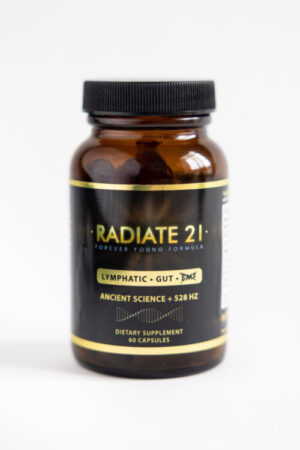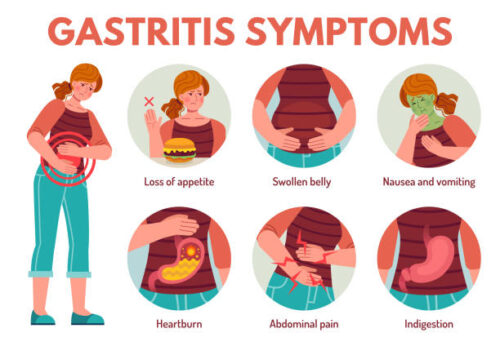Feeling suddenly nauseous or queasy after eating can be a sign of gastritis, which is an inflammation of the lining of the stomach. Gastritis can be caused by infection, autoimmune disorders, bile reflux, or excessive alcohol use, but it may also occur for no clear reason.
Whatever the cause, gastritis results in a painful burning or gnawing feeling in the upper abdomen. If left untreated, it can lead to bleeding ulcers and damage to the stomach lining.
The good news is that gastritis can often be treated and healed through natural means, without resorting to medications that can cause side effects. One of the most effective natural remedies is using certain oils that have anti-inflammatory and soothing properties.
Oils like Coconut, Sangre De Grado, and Una De Gato have been used for centuries in folk medicine traditions to heal ulcers and calm gastrointestinal distress. When ingested, these oils can coat the stomach lining and help reduce irritation and inflammation.
In this article, we’ll explore the research behind using these medicinal oils to treat gastritis and restore gut health. We’ll discuss the different causes of gastritis and how these oils can target the root of the problem.
You’ll learn the best ways to incorporate healing oils into your diet through cooking, supplements, or aromatherapy. We’ll also provide tips on lifestyle and diet changes that can prevent gastritis flare-ups. With the help of natural oils, you can find relief from that sudden nausea and promote lasting gut wellness.
What is Gastritis and What Causes It?
Gastritis is inflammation of the lining of the stomach, known as the gastric mucosa. When this lining becomes irritated or damaged, it can cause symptoms like a gnawing abdominal pain, nausea, vomiting, and a feeling of fullness after eating only a small amount.
Gastritis has several potential causes:
- Infection with the bacterium Helicobacter pylori – H. pylori causes most cases of gastritis and can lead to stomach ulcers. It disrupts the normal protective factors of the stomach lining.
- Chronic use of NSAIDs or aspirin – These medications can irritate the stomach lining, particularly with long-term use. This is because they reduce the effects of prostaglandins that normally protect the mucosa.
- Excessive alcohol consumption – Alcohol increases stomach acid production and can eat away at the lining of the stomach over time. It also impairs the ability of the stomach to clear itself of acid.
- Autoimmune disorders – Conditions like pernicious anemia, in which the immune system attacks stomach cells, can lead to atrophic gastritis.
- Chronic stress – Stress hormones may damage the protective mucosal layer and suppress the immune system, allowing H. pylori to thrive. Stress is also linked to poor healing.
If left untreated, gastritis can worsen and eventually lead to peptic ulcers or bleeding in the stomach. So it’s important to address gastritis through natural remedies and lifestyle changes.
Healing Oils for Gastritis Relief
Certain plant-based oils have medicinal qualities that make them beneficial for treating gastritis and repairing gut health. The key is using oils with high levels of antioxidants and anti-inflammatory components.
Coconut Oil
Coconut oil contains two powerful medium chain fatty acids – lauric acid and caprylic acid. Together they provide antimicrobial effects to fight foreign bacteria like H. pylori. These fatty acids also reduce inflammation in the gastric tissue by suppressing inflammatory cytokines.
Multiple studies confirm that ingesting virgin coconut oil can reduce ulceration and erosions in the stomach. It has an ORAC value of 8062, meaning it contains antioxidants that can neutralize damaging free radicals.
Sangre de Grado
Sangre de grado is a viscous sap derived from the Croton lechleri tree. It has an exceptional ORAC value of over 100,000, one of the highest antioxidant capacities found in natural products.
The sap is rich in proanthocyanidins, alkaloids, and lignans that provide anti-inflammatory, antimicrobial, and mucosal protective benefits. Research shows sangre de grado inhibits growth of H. pylori bacteria. When applied topically, it forms a protective coating over gastric lesions to promote tissue regeneration.
Una de Gato (Cat’s Claw)
Una de gato comes from the bark and root of the cat’s claw woody vine found in the tropical jungles of South America. It has been used traditionally for gastrointestinal problems and contains phytochemicals like flavonoids, alkaloids, sterols and polyphenols. These compounds exert antioxidant, anti-inflammatory, and antimicrobial effects in the gut.
Cat’s claw has an ORAC value of over 15,000. Studies indicate it can inhibit H. pylori adhesion and growth while also stimulating production of mucosal defenses like bicarbonate, mucin, and prostaglandins to protect the stomach lining.
Using Medicinal Oils to Treat Gastritis
When using medicinal oils to treat gastritis, it’s best to start with smaller doses and increase slowly to assess tolerance. Oils can be taken by the spoonful, incorporated into beverages like smoothies or broths, or put into gel capsules. Combining the oils with gut-healing foods like bone broth, fermented foods, and yogurt provides synergistic benefits for comprehensive gut healing.
To receive the most benefit, the oils should be used consistently over a period of 4-6 weeks. At the same time, triggers like alcohol, smoking, processed foods, excessive caffeine, and chronic stress should be avoided to prevent flare ups and allow the stomach lining to regenerate. With diligent use of these natural medicinal oils, relief from gastritis symptoms and lasting gut health is possible.
If you’re looking for an easy and effective way to incorporate the benefits of medicinal oils for gut health, consider checking out
Radiate 21
Fortify your gut lining integrity with Radiate 21, strengthen it with powerful adaptogens such as Sangre de Drago and Una de Gato, Ashwagandha. Radiate 21 is Your Forever Young Formula To Enhance Lymphatic Detoxification, Protect From EMF Related Oxidation & Aging, Fortify Immunity & Strengthen The Gut Lining For Better Nutrient Absorption.
This capsule can be swallowed like any other pill and has no taste. However, because it’s a liquid capsule with a coconut oil base, it can sit under your tongue and melt. If you take this route, you’ll taste a burst of mostly tangy-citrus, minty-zesty, with a subtle hint of herbal, floral and spiced undertones.
With regular use, Radiate 21 can help:
- Soothe gastritis symptoms and stomach irritation
- Heal your gut lining
- Fight free radicals and signs of aging
- Boost lymphatic flow
- Turn your stress into functional energy
Radiate 21 also provides system-wide benefits beyond the gut. The botanicals enhance immunity, vitality, focus, and cellular health. They are even shown to support DNA repair processes.
Click Here To Learn More About Radiate 21
Gastritis can be an uncomfortable and even painful condition, but you don’t have to rely on conventional medicine and medications to find relief. Nature provides us with powerful medicinal oils that can help treat the root causes of gastritis and promote healing of the gut lining.
Oils like coconut oil, sangre de grado, and cat’s claw contain beneficial compounds that fight infection, reduce inflammation, and strengthen the mucus barriers that protect your stomach. The key is using high quality, pure oils and taking them consistently over a period of 4-6 weeks to allow their gut-soothing properties to take effect.
Combine these natural remedies with probiotic foods, bone broth, stress reduction techniques, and avoiding gastritis triggers. With this comprehensive approach, you can find relief from the burning, gnawing, or nauseous sensations of gastritis and get your digestive health back on track. The stomach is designed to heal itself when supported with the proper nutrition and botanical medicines.





